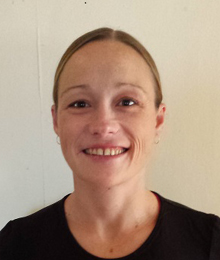Webinar: Triaging Child Abuse Material cybertips for investigative prioritisation
Registration: 5 August 2020–10 September 2020
Online production and transmission of Child Abuse Material (CAM) is a complex and growing global problem. The CyberTipline of the National Center for Missing and Exploited Children (NCMEC) – the US centralized reporting system for the online exploitation of children – distributes cyber tips about online offending to law enforcement agencies all over the world.
The exponential increase in case referrals over the last five years have compounded with the COVID-19 pandemic, creating a 318 percent increase in cyber tip reports in April 2020 compared to April 2019. The sheer volume in CAM cyber tips puts enormous pressure on both law enforcement investigators and cyber-tip triage staff, the latter making potentially life and death decisions about which cyber tips are referred for case investigative prioritisation. These triage decisions occur under multiple pressures including limited timeframes, finite investigative resources, increasing case-loads and the real life impacts on the well-being of a child victim if a case is not progressed for investigative action. Triage staff thus work under extremely intense conditions, often making investigative prioritisation decisions based on professional judgement and their individual law enforcement experience with online CAM offending.
This presentation details the outcomes of a collaborative research project undertaken in 2019-20 that focussed on the development of a new decision support tool for CAM triaging and investigative prioritisation for use by the AFP’s Child Protection Triage Unit. The Triage Referral Investigation Support Tool (TRIST) was designed to be quicker and more procedurally efficient to complete than its predecessor. The new tool also enables CAM triage staff to rapidly and objectively assess the need to progress a cyber-tip for further investigation: a critical decision that potentially impacts the safety of a child victim and the operational capacity of child protection investigation teams.
This combined academic – police practitioner team approach is a demonstration of social science in action. The fight against cybercrime offending requires more than tech-based solutions. Success or failure, in many ways, hinges on an appreciation of human factors – the bread and butter of social scientists!
Keynote speaker
|
|
A former Australian Army officer, David’s 30-year career in the Australian Intelligence Corps provided wide-ranging experience and specialist qualifications in the intelligence and security domains. He served at the strategic, operational and tactical levels of command providing advice and support to commanders and decision makers both in Australia and deployed on operational service. The culmination of David’s military career came with his appointment as Commandant of Australia’s Defence Intelligence Training Centre in 2003. With command and management responsibility for 145 military and civilian staff, an operational remit for the provision of all intelligence training within Defence and an annual operating budget of $2.5m, this position represents the pinnacle of achievement for an Australian Intelligence Corps officer. David was awarded a Commander Training Command Commendation for his performance of duty in this role. Since separating from the Regular Army in 2006, David has established and maintained a successful consultancy focussed on the provision of intelligence and security expertise. Levering his knowledge and experience of working as a member of the Australian Intelligence Community for 30 years, David has provided consultancy services to several major Defence projects. He has also developed and delivered intelligence training to organisations including the Australian Federal Police, Victoria’s Office of Police Integrity and the Australian Security Intelligence Organisation. David possesses a Bachelor of Arts (Honours) degree from the University of New South Wales, a Master of Justice from the Queensland University of Technology and a Doctor of Philosophy from the University of Queensland in which he researched investigative interviewing skill acquisition, transfer and application in the Queensland Police Service. In recent years he has been engaged by the University to design, develop and teach an undergraduate course in Global Security and Regulation and to design the criminology component of a new course offering – the Master of Cyber Security. Last year, David was the Coordinating Principal Investigator for a joint University of Queensland / Australian Federal Police project to counter the possession, production and distribution of Child Abuse Material. He is currently engaged as a Cyber Criminology lecturer teaching into the inaugural Master of Cyber Security course. |
Panelists
|
Professor Lorraine Mazerolle |
Lorraine Mazerolle is an Australian Research Council Laureate Fellow (2010–2015) and a Professorial Research Fellow at The University of Queensland. Her research interests are in experimental criminology, policing, drug law enforcement, regulatory crime control, and crime prevention. She is the co-chair Crime and Justice Group, Campbell Collaboration and a Fellow of the American Society of Criminology (ASC), the Academy of Experimental Criminology (AEC) and the Academy of the Social Sciences, Australia (ASSA). Professor Mazerolle is the recipient of the ASC Division of Experimental Criminology Jerry Lee Lifetime Achievement Award (2019), Partners in Research Excellence Award The University of Queensland (2019), CEBCP Distinguished Achievement Award of the Center for Evidence Based Crime Policy at George Mason University (2019), ASC Sellin-Glueck Award (2018), the ASC Division of Policing Distinguished Scholar Award (2016), the AEC Joan McCord Award (2013), and the ASC Division of International Criminology Freda Adler Distinguished Scholar Award (2010). |
|
Dr Renee Zahnow |
Dr Renee Zahnow is a Lecturer in Criminology at the School of Social Sciences at the University of Queensland. Renee has expertise in spatial and longitudinal analyses; she has applied these skills to examine a range of social problems including crime, disorder, substance use and community regulation. Renee’s research focuses on place-based patterns of crime and victimization; she is particularly interested in understanding the link between the regularities of daily human mobility, social and behavioral norms and the propensity for crime and deviance. Renee is a recipient of the ASSA Paul Bourke Award (2019) and an Australian Research Council DECRA Fellow (2020-2023). |
Webinar details
Date: Thursday 10 September 2020
Time: 2–3pm AEST
RSVP: By Wednesday 9 September 2020
Webinar link will be emailed to you after you register.
Enquiries: engagement@hass.uq.edu.au
This webinar is organised by the School of Social Sciences and the Institute for Social Science Research, as part of Social Sciences Week.

 Dr David Mount
Dr David Mount
